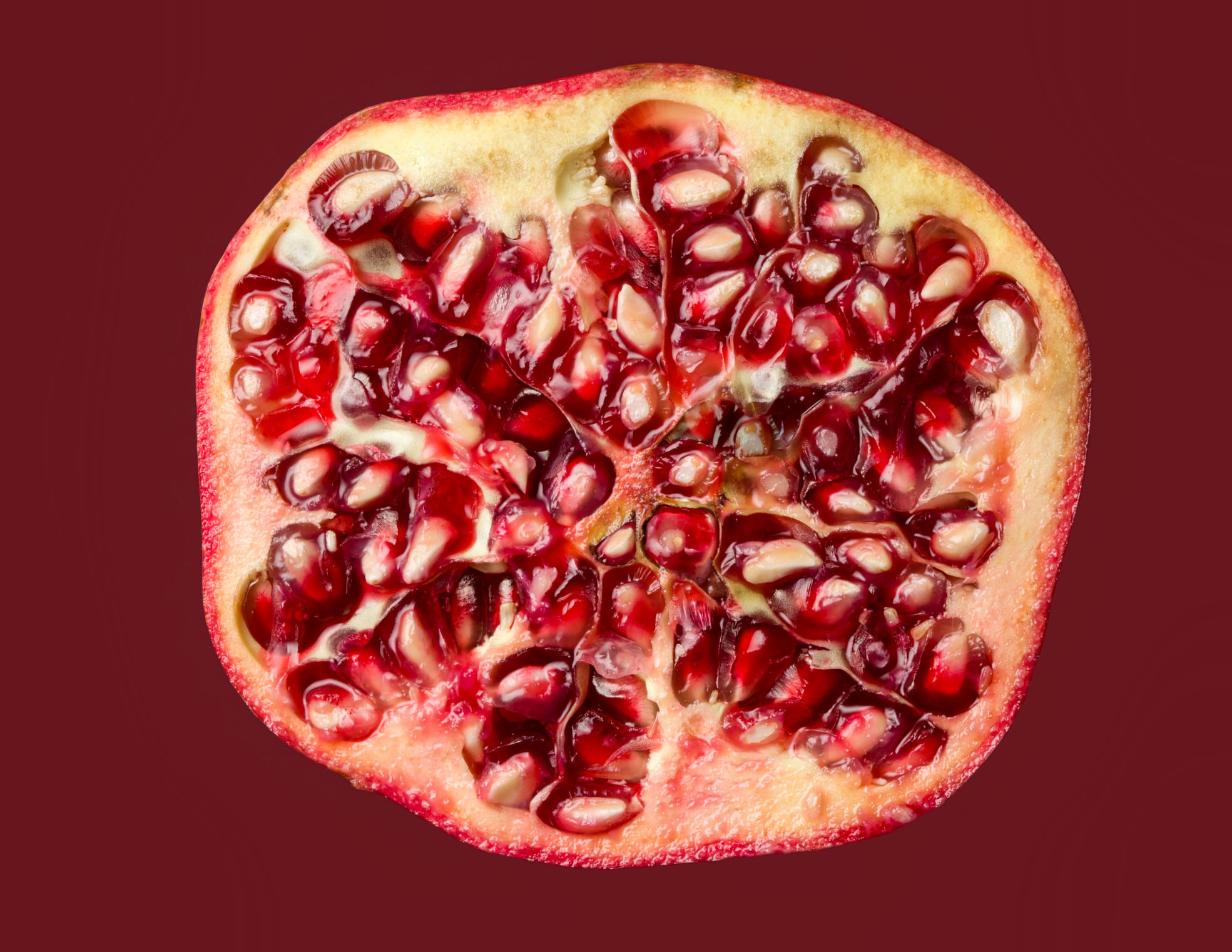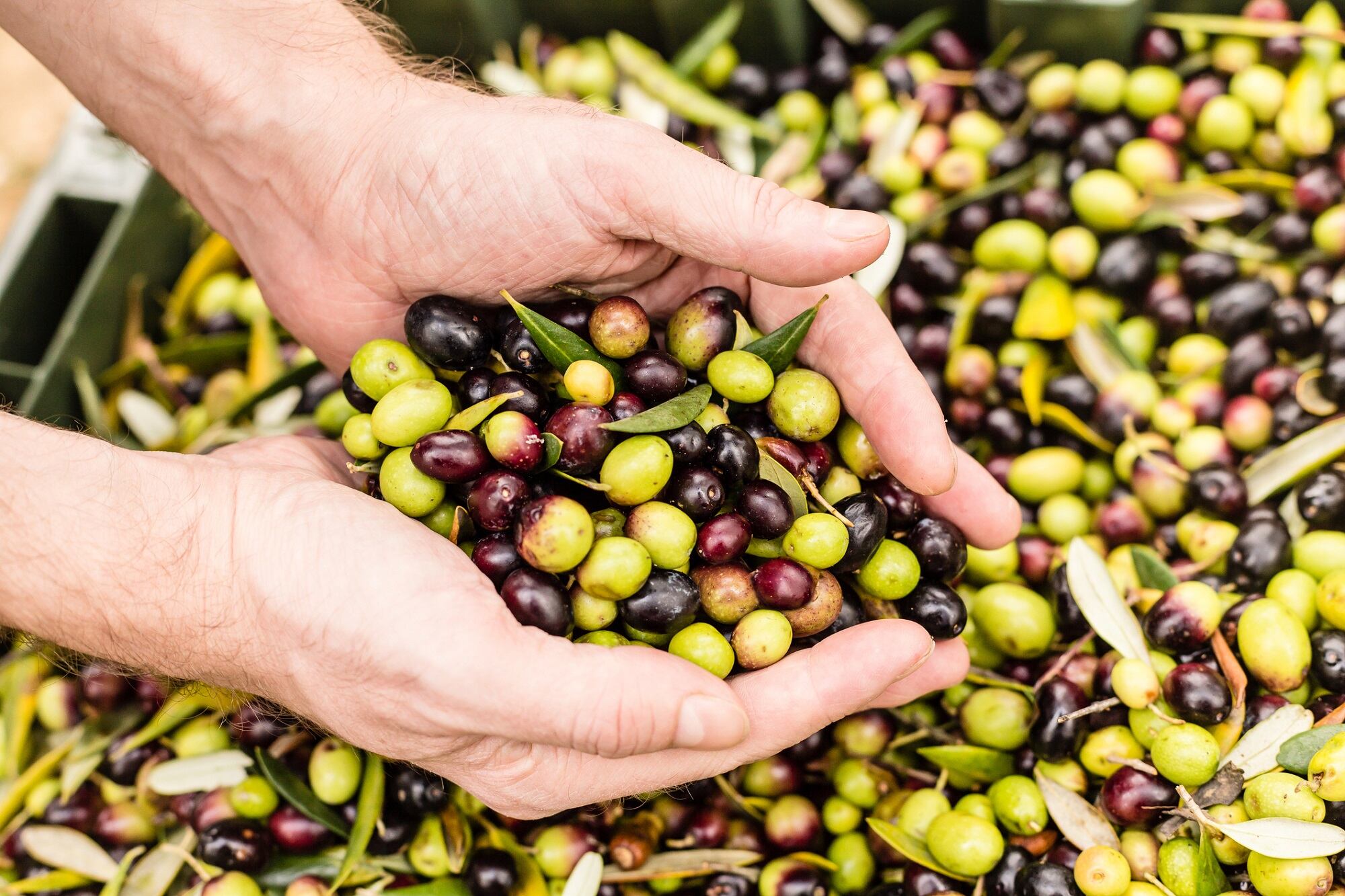The Molecules study analyzed PSOE effects on symptoms of phenobarbital-formaldehyde exposure in rats and skin issues on human hands. Researchers found that PSOE helped mitigate the effects of phenobarbital-formaldehyde in rats and improved skin callouses, nail inflammation and skin tags in human subjects.
“...Pomegranate seed oil extract treatment reversed the effects of phenobarbital and formaldehyde, suggesting that its extract might have anti-inflammatory, antifungal, and antibacterial effects,” the authors write.
Pomegranate as a healing agent
Previous studies have shown pomegranate inhibits oxidation sensitivity, boosts the levels of the antioxidant enzymes glutathione, glutathione peroxidase, and catalase, diminishes immune cell count, and stimulates the proliferation of keratinocytes, which play a fundamental role in the immune response against infection.
“Moreover, pomegranate has been used to treat acute and chronic wounds, such as surgical wounds, burns, oral, stomatitis, and diabetic wounds, and gastric ulcers, producing results better than, or comparable to, those of commercial medicines, and with no adverse effects,” the authors write.
Mitigating effects of phenobarbital and formaldehyde in rats
It may be surprising, but many people are exposed to phenobarbital and formaldehyde in their daily routines from food additives to pharmacological treatments. Formaldehyde specifically can be found in canned foods, drinks and cigarettes. Both formaldehyde and phenobarbital are carcinogens and can cause inflammation, depression and stress.
For the animal portion of the study, the authors injected rats with phenobarbital and formaldehyde over a span of three weeks. The rats were divided into groups: PSOE, Avocom-M (a treatment for skin issues such as psoriasis) and control.
Authors found that both groups administered PSOE and Avocom-M had decreased levels of collagenase, elastase, hyaluronidase, tyrosinase, cyclooxygenase-2, lipid peroxidation, and nitric oxide, when compared to the control group. The group administered Avocom-M had greater decreases in inflammatory signs than those administered PSOE, except for MDA which was reduced greater for PSOE.
A separate group of rats was given PSOE, but not formaldehyde or phenobarbital and showed no changes.
Treating hand skin issues in humans
Sixty women participated in the study. Hand calluses, nail inflammation and skin tags surrounding nails were studied. Groups were treated with either PSOE or TROSYD, which contains 1% tioconazole and is used to treat nail infections.
The reoccurrence rate of skin issues ranged from 0% to 67% following several months of either treatment. For PSOE, hand calluses had a 0% rate of reoccurrence with 60% for nail inflammation and 67% for extra skin tags surrounding nails. In comparison, TROSYD had a 50% reoccurrence for nail inflammation and 57% extra skin tags around nails.
Both groups treated with PSOE and TROSYD “showed significant declines in the levels of skin inflammation and skin collagenase, elastase, hyaluronidase, tyrosinase, NO, MDA, and COX-2,” the authors write. TROSYD treatment resulted in greater improvement than PSOE for each of these except for tyrosinase.
The outcomes of the rat study were confirmed by comparisons of the data from human volunteers treated with TROSYD or PSOE with those from untreated volunteers.
Conclusions
The authors write an overall improvement was noted in the rats’ skin condition with PSOE and Avocom-M against phenobarbital and formaldehyde effects. Human skin was also significantly improved with the PSOE and TROSYD treatments.
Source: Molecules
2023, 28(2), 903; https://doi.org/10.3390/molecules28020903
“Biochemical Pilot Study on Effects of Pomegranate Seed Oil Extract and Cosmetic Cream on Neurologically Mediated Skin Inflammation in Animals and Humans: A Comparative Observational Study.”
Hamouda, A., et al.




